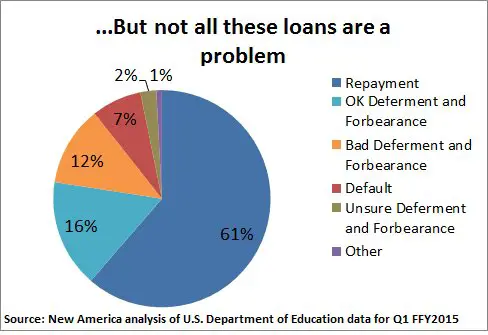Looking to financially plan for home schooling? You’ve come to the right place! With the increasing popularity of homeschooling, many parents are seeking guidance on how to effectively manage their finances while providing high-quality education for their children. In this article, we will explore practical strategies and tips to help you navigate the financial aspects of home schooling. From budgeting and resource allocation to seeking out cost-effective alternatives, we’ve got you covered. So, whether you’re just starting your home schooling journey or looking to fine-tune your existing financial plan, read on to discover how to financially plan for home schooling without breaking the bank.
How to Financially Plan for Home Schooling
Budgeting for Home Schooling Expenses
When it comes to home schooling, one of the key factors to consider is the financial aspect. Planning your budget can help ensure that you have enough resources to provide your child with a quality education. Here are some steps to help you financially plan for home schooling:
Evaluate Your Current Finances
Before diving into home schooling expenses, it’s important to assess your current financial situation. Take a close look at your income, expenses, and savings to determine how much you can allocate towards home schooling. Consider any existing debts or financial commitments that may impact your budget.
Determine Home Schooling Method
Next, decide on the approach you will take for home schooling. There are various methods to choose from, such as online curriculums, virtual academies, or traditional textbooks. Each method comes with different costs, so it’s crucial to research and identify which one aligns with your budget and educational goals.
Create a Detailed Expense List
To effectively plan your finances, create a comprehensive list of all the potential expenses associated with home schooling. This should include curriculum materials, textbooks, online subscriptions, educational resources, field trips, extracurricular activities, and any other relevant costs. A detailed expense list will help you estimate the total amount required for home schooling.
Research Materials and Resources
Once you have identified the curriculum or educational method you want to utilize, research the associated materials and resources. Look for affordable options like used textbooks, free online resources, educational apps, and libraries that can supplement your homeschooling journey without breaking the bank. Explore local homeschooling communities or online forums to get recommendations from experienced homeschoolers.
Set Financial Goals
Setting financial goals can provide focus and motivation to stick to your budget. Determine how much you want to spend on each category of expenses, such as curriculum materials, field trips, or extracurricular activities. Additionally, consider long-term financial goals such as saving for college or higher education so that you can plan accordingly.
Explore Secondhand Options
Home schooling materials can be expensive, but there are often more affordable alternatives available. Look into purchasing used textbooks, joining homeschooling book swaps, or utilizing online platforms that offer discounted educational resources. Consider borrowing materials from other homeschooling families or creating a shared resource pool within your local homeschooling community.
Utilize Free Online Resources
The internet is a treasure trove of free educational resources that can support your home schooling curriculum. There are numerous websites, educational YouTube channels, and online libraries offering high-quality educational content across various subjects. Incorporating these free resources into your lesson plans can help reduce costs while still providing a well-rounded education.
Explore Community Programs
Check if your local community or public library offers free or discounted programs for homeschooling families. Many libraries organize educational workshops, guest lectures, and reading programs for children. Take advantage of these resources to enhance your child’s learning experience and social interaction without straining your budget.
Seeking Financial Assistance for Home Schooling
While budgeting is essential, some families may need additional financial assistance to support their home schooling journey. Here are some avenues to explore:
Research Grants and Scholarships
Many organizations and foundations provide grants and scholarships specifically for homeschooling families. Research and apply for these opportunities to help offset the costs of curriculum materials, educational resources, or other home schooling expenses. Websites like homeschool.com and hslda.org offer resources and information on available grants and scholarships.
Look into Tax Benefits
In some countries, there may be tax benefits or deductions available for home schooling expenses. Check with your local tax authority or consult a tax professional to understand if you qualify for any tax credits or deductions related to your home schooling expenses. Keep thorough records of your educational expenses to support your claims.
Consider Flexible Employment Options
Flexible employment options can provide financial stability while allowing you to dedicate time to home schooling. Explore work-from-home opportunities or part-time jobs that can fit around your schedule. Freelancing, tutoring, or starting a small home-based business in your area of expertise are potential avenues to generate income while managing home schooling responsibilities.
Connect with Homeschooling Co-ops
Homeschooling co-ops are communities of homeschooling families who come together to share resources, support, and even co-teach. These co-ops often organize group buys, where families can pool their resources to purchase curriculum materials and resources in bulk, resulting in significant cost savings. Engage with local homeschooling co-ops to explore such cooperative opportunities.
Consider Micro-Schooling
Micro-schooling is an emerging concept where small groups of students share the cost of hiring a teacher or tutor. By pooling resources, families can provide a more personalized and cost-effective education for their children. Explore the possibility of forming a micro-schooling group in your community to share expenses and educational responsibilities.
Charitable Organizations and Grants
Some charitable organizations and foundations provide financial assistance to homeschooling families. Look for organizations that specifically focus on education or homeschooling. Additionally, search for grants or crowdfunding platforms that support educational initiatives. Craft a compelling proposal, explaining your home schooling plan and financial needs, and apply for these grants or seek crowdfunding support.
Reviewing and Adjusting Your Financial Plan
Financial planning for home schooling is an ongoing process. Regularly reviewing and adjusting your financial plan is crucial to ensure you stay on track and adapt to changing circumstances. Here are some steps to follow:
Track Your Expenses
Keep a detailed record of your home schooling expenses to track where your money is going. This will help identify areas where you might be overspending or areas where you can cut back. Use budgeting apps or spreadsheets to maintain an accurate record of all your home schooling expenses.
Review Your Budget Periodically
Set aside time every few months to review your budget. Evaluate whether you’re sticking to your planned expenses and identify any areas where adjustments can be made. If you find that certain expenses are consistently higher than expected, brainstorm strategies to reduce those costs without compromising the quality of education.
Explore Cost-Saving Opportunities
Continuously look for new ways to save money on home schooling expenses. Keep up with the homeschooling community to stay informed about affordable curriculum options, discounts, and free resources. Share cost-saving tips and strategies with other homeschooling families to collectively benefit from each other’s experiences.
Reassess Financial Goals
As your home schooling journey progresses, reassess your financial goals and adjust them as needed. Consider factors like changes in your income, your child’s educational needs, and any additional expenses that may arise. Adapt your financial plan to accommodate these changes and set new targets accordingly.
Seek Professional Advice
If you’re struggling to manage your home schooling finances or need expert guidance, consider consulting a financial advisor. A financial professional can help you analyze your budget, suggest strategies for saving, and provide personalized advice based on your specific circumstances. Their expertise can bring a fresh perspective and help optimize your financial plan.
Remember, with careful planning, resourcefulness, and strategic budgeting, you can provide your child with a quality education through home schooling while maintaining financial stability. By evaluating your finances, exploring cost-saving opportunities, and seeking financial assistance when necessary, you’ll be well-equipped to embark on a successful home schooling journey.
How I work and homeschool?!
Frequently Asked Questions
Frequently Asked Questions (FAQs)
Q: How can I financially plan for homeschooling?
A: Financial planning for homeschooling involves several key steps:
- Evaluate your current financial situation.
- Create a budget that factors in homeschooling expenses.
- Research and choose curriculum materials within your budget.
- Explore free or low-cost educational resources online.
- Consider any additional expenses such as field trips or extracurricular activities.
- Look for ways to save on homeschooling supplies and materials.
- Explore potential sources of financial assistance or grants.
- Regularly review and adjust your budget as needed.
Q: Are there any free or low-cost homeschooling resources available?
A: Yes, there are numerous free or low-cost homeschooling resources available online. Websites like Khan Academy, Coursera, and Education.com offer educational materials and resources for various subjects. Additionally, public libraries often provide access to free educational materials and resources, including books, e-books, and online databases.
Q: How can I save money on homeschooling supplies?
A: Here are a few tips to save money on homeschooling supplies:
- Buy used textbooks or borrow them from other homeschooling families.
- Take advantage of back-to-school sales and discounts.
- Shop for supplies in bulk to save on costs.
- Utilize online marketplaces or local homeschooling groups for second-hand materials.
- Repurpose household items for educational activities whenever possible.
Q: Can I get financial assistance or grants for homeschooling?
A: While homeschooling financial assistance options may vary depending on your location, it’s worth exploring potential avenues for assistance. Some organizations or foundations offer grants or scholarships specifically for homeschooling families. Additionally, you may find resources or programs through state or local government departments related to education or homeschooling.
Q: How do I create a homeschooling budget?
A: To create a homeschooling budget, follow these steps:
- Determine your monthly income and take into account any fluctuating income sources.
- List all your essential expenses, including housing, utilities, and food.
- Allocate funds for curriculum materials, supplies, and educational resources.
- Consider any extracurricular activities or field trips that may require additional funding.
- Set aside a contingency fund for unexpected expenses.
- Regularly track your expenses to ensure you stay within your budget.
Q: How can I evaluate my financial situation before homeschooling?
A: Before homeschooling, evaluate your financial situation by:
- Assessing your current income and expenses.
- Identifying any outstanding debts or financial obligations.
- Calculating your savings and emergency fund.
- Considering any potential changes in income or financial circumstances.
- Estimating the costs associated with homeschooling, including materials and resources.
Q: Are there any tax benefits or deductions for homeschooling expenses?
A: Tax benefits and deductions for homeschooling expenses vary depending on your location and specific circumstances. It’s advisable to consult with a tax professional or check your local tax regulations to determine if any deductions or benefits apply to your homeschooling expenses.
Q: How often should I review and adjust my homeschooling budget?
A: It’s recommended to review and adjust your homeschooling budget on a regular basis, ideally on a monthly or quarterly basis. This allows you to track your spending, make any necessary adjustments, and ensure you stay on track with your financial goals.
Final Thoughts
In conclusion, financially planning for home schooling is crucial to ensure a successful and sustainable learning experience for your child. By setting a budget, exploring free resources, and seeking financial assistance, you can effectively manage the expenses associated with home schooling. Prioritizing essential materials, collaborating with other home schooling families, and maximizing tax benefits are additional strategies that can help alleviate the financial burden. Remember to review and revise your financial plan regularly, making necessary adjustments as needed. With careful planning and resourcefulness, you can confidently navigate the financial aspect of home schooling and provide your child with an enriching educational journey.



